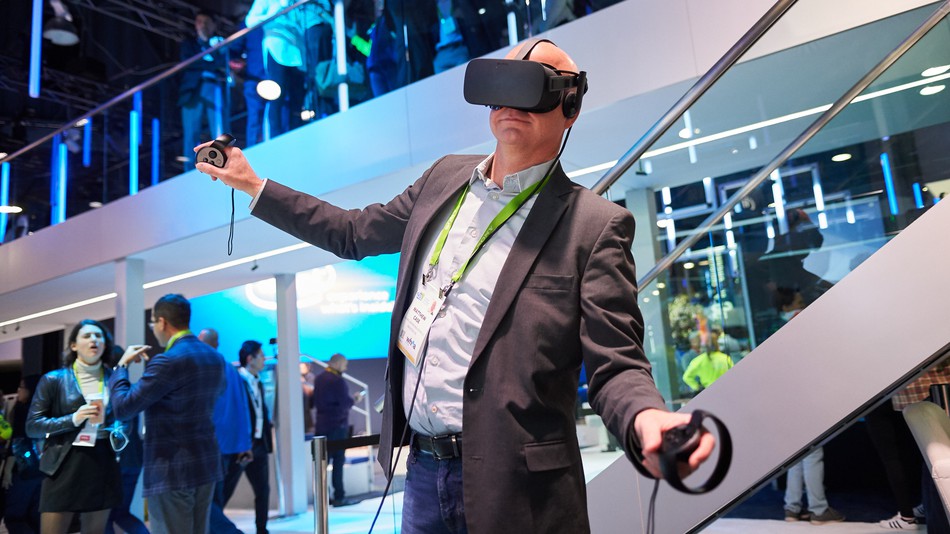At the world’s biggest technology festival, the Consumer Electronics Show which takes place in Las Vegas this week, it won’t just be the worrying state of Apple’s revenues and the US government shutdown contributing to the sense that there won’t be smooth sailing ahead for the gadget industry.
The biggest trends in consumer technology in 2019 – artificial intelligence and 5G mobile connectivity – will play their part, too, in creating a windless feeling, the sense that the tech sector might be somewhat in the doldrums right now.
But if this year’s CES proves to be much like last year’s, dominated by TVs and other household items you can speak to in the often misplaced hope they will understand you, it won’t be for lack of activity on the gadget industry’s part.
The big trends in consumer electronics this year, like last year, are technologies that are so nascent, so far from the products they will one day be, that much of the development work is still going on far beneath the surface, well out of view of the public that will one day enjoy them.
The propellers are still spinning full speed ahead, but the ships are barely moving.
It has to be said, however, not all the propellers are spinning. Speeches and panels that were programmed to include officials from US government departments such as the Federal Communications Commission, the Federal Trade Commission and the Environmental Protection Agency have been cancelled due to the partial shutdown of the US government.
(Though, in the case of FCC chairman Ajit Pai, who cancelled a planned on-stage interview with Gary Shapiro, the president of the Consumer Technology Association that hosts CES each year, it’s widely speculated that the partial shutdown simply provided cover for avoiding questions about the FCC’s repeal of internet neutrality, a decision that was very unpopular with the US digerati, to the point where Mr Pai reportedly received death threats.)
The next generation in mobile connectivity, the so-called “5G” networks that will replace current 4G networks over coming years, looks set to give rise to new handsets at CES this year, that can take advantage of the faster data speeds which 5G networks promise.
Wait for AI
But the 5G technology that is being rolled out around the world this year is a crippled version known as “5G Non Stand Alone”, that piggybacks on existing 4G networks and doesn’t offer the full benefits of 5G, particularly when it comes to speeding up everyday tasks such as web browsing.
With the standards for the non-crippled “Stand Alone” version yet to even be ratified, much less rolled out, consumers will have to wait until next year’s CES to see handsets and other devices that will feel like a dramatic improvement on existing 4G handsets for most tasks.
But that wait will feel short compared to the wait for truly great Artificial Intelligence gadgets.
While Mr Shapiro says AI will “pervade” this year’s CES much as it pervaded last year’s CES, the version of AI that consumer will see this year will still be the crippled, pre-canned one that only knows how to answer the questions it’s been taught by humans to answer, and perform the tasks it’s been taught to perform, and even then it will only do a patchy job at best.
The version of AI that will truly revolutionise consumer electronics, that will be able to figure out what a user is asking even when they don’t use the right keywords, and then figure out for itself how to fulfil that request even if it’s never heard that request before, is still in the laboratories at companies such as Google, Amazon, Microsoft and Samsung, and researchers at those companies admit it could be years, even decades, before it comes to a show such as CES.
This year, there will be gadgets aplenty that will listen for the sound of your voice, and turn on some power switches when you ask clear and properly formatted fashion.
Some of those power switches might even be attached to electric fans, that will turn on and off at the sound of your voice.
Just don’t expect those fans to make enough wind to fill the sails of the consumer electronics industry. Not this year.
Source: afr.com
Author: John Davidson
